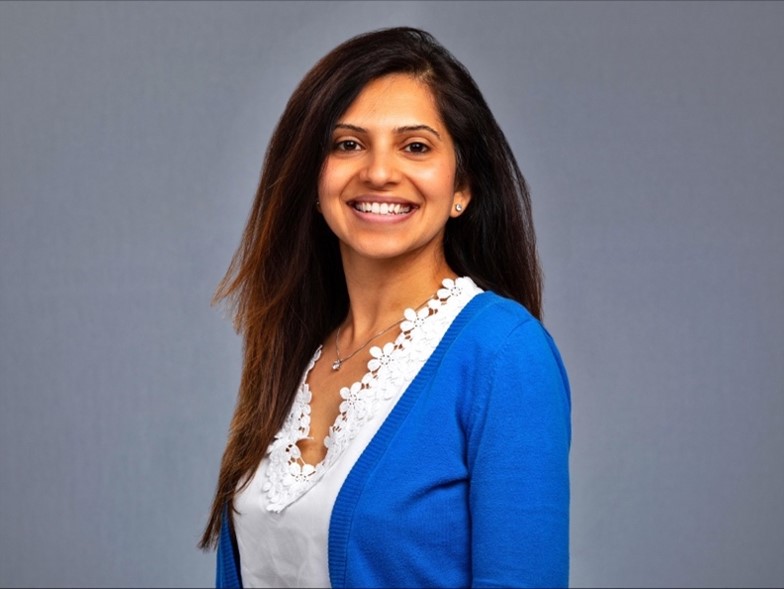Members Only | 07.23.24
Dr. Kruti Shah Is in a ‘RUSH’ to Build Disability Awareness
By Teddy Durgin
July is Disability Pride Month, a 31-day period to celebrate the disability community and honor the progress that has been made since the Americans with Disabilities Act (ADA) was signed into law on July 26, 1990. What better way to do that from a medical staff services angle than to interview a healthcare professional on the frontlines of disability awareness.

Dr. Kruti Shah
Dr. Kruti Shah is an inpatient pharmacist who has spearheaded health systemwide initiatives aimed at fostering wellness and inclusion. She serves as a co-chair of the Pharmacy Wellness Committee at RUSH Medical Center in Illinois and as co-chair of the DEI committee of the Illinois Council of Health Systems Pharmacists (ICHP). Just one of her accomplishments for the community? During the COVID-19 pandemic when medical masks became a barrier to lipreading, she successfully advocated for clear masks to be acquired and distributed at RUSH to improve communication between employees, patients, and visitors.
As a former Disability Lead fellow, and a Public Voice Fellow, Shah utilizes her platform to raise awareness and promote disability affirming care. She says, “Access plays an important role at RUSH, whether that is for patients who are getting medical care at RUSH, students who are pursuing their healthcare degree at RUSH University, or for employees who are providing care. At RUSH, we as healthcare professionals are committed to providing equitable care. Access allows an individual to have reasonable accommodations needed to level the playing field.”
Shah herself personally self-identifies with the disability of hearing loss. “Hence, in my case, having accommodations such as captions during virtual or in-person meetings provide access to communication,” she states. “Captions not only help those who are deaf or hard of hearing, but also help those who are not native speakers of English or when sound is not accessible due to speakers/audio issues. Many other features such as ramps, elevators, and voice-activated technologies are made for those with disabilities, but they help many. This is the beauty of universal design.”
At RUSH, there is an established ADA Taskforce and the Disabilities Employee Resource Group, both of which Shah is a part of. Through these committees, RUSH leadership has taken initiatives to listen to issues and accessibility barriers that an employee and/or patient may be facing and to address them.
Shah says, “The issue that we as a society face, not just at RUSH, is the stigma associated with disabilities, which perpetuates further ableism. Research shows that people with disabilities [or PWD] receive lower quality care than non-disabled individuals, and a lot of this has to do with barriers, such as physical, communication, but most importantly attitudinal barriers.
Not only that, but accessibility is often viewed as an additional hurdle, and people with disabilities are often viewed as burdensome. It is not just a responsibility of those who are disabled to advocate for access, but it is a collective responsibility to be allies, to elevate stories, and to humanize disability.”
From a larger perspective, the question was posed to Shah: “What do you see is the single biggest problem today with regards to accessibility in hospitals, medical centers, and other healthcare properties?” Her answer? “Even though ADA was signed into law 34 years ago, which mandates that people with disabilities not be discriminated against, the enforcement and compliance of this law can be inconsistent. Many facilities are not audited for accessibility compliance, leading to gaps in service provision. So many healthcare facilities are inaccessible due to physical barriers, lack of availability of accessible medical equipment, lack of financial resources to support live ASL interpreter services, and many more.”
Shah went on to speak about remaining accessibility barriers, most of which stem from lack of sensitivity training and a lack of awareness of resources available to provide equitable services. Healthcare professionals frequently receive insufficient training on how to interact with and care for patients with disabilities. This can lead to misunderstandings, inadequate care, and a lack of empathy in the treatment process.
“It can be mandated to have an annual disability inclusive training for all healthcare workers,” Shah remarks. “Also, utilizing national awareness days or month, such as July being Disability Pride Month, to promote education and allyship can be monumental in bringing a shift from medical model of disability to diversity model of disability.”
As a member of the Association of Medical Professionals with Hearing Losses (AMPHL), Shah says she feels strongly that legislative efforts are crucial in ensuring that healthcare is accessible to all. At the Illinois state level, the Patient Communication Accessibility Act is pending. This legislation focuses on improving communication methods within healthcare settings for patients with disabilities. It mandates that hospitals and clinics provide accessible formats for medical information and ensure that sign language interpreters or other communication aids are available.
At the federal level, the Healthcare Accessibility for People with Disabilities Act is pending, and its goal is to improve accessibility in healthcare settings nationwide. Shah states, “It mandates that all healthcare facilities comply with the ADA standards, ensuring that medical equipment, examination rooms, and patient communication methods are accessible.”
So, does Shah have a dream piece of legislation that she would love to see passed that would really benefit hospitals, medical centers, clinics, and so forth? She was quick to answer: “One dream piece of legislation that can be instrumental in bringing about a change we need in our healthcare system is ensuring that there are disabled individuals at the table where decisions are made. Representation matters, and making disability a part diversity, equity, and inclusion is a key to belonging, access, and equitable care!”